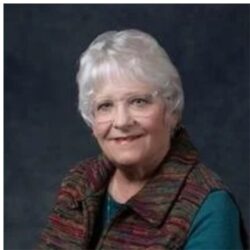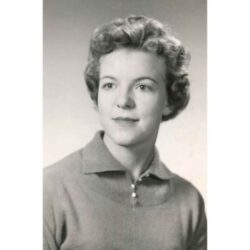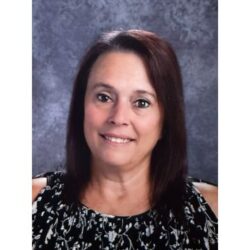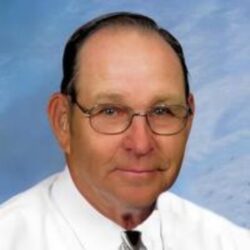By Gary Demuth

Daniel Velasco picked up the flute by way of the recorder.
A native of Ecuador, Velasco learned to read music as a young student by learning basic notes on the recorder. His music teacher believed he had a natural facility with the instrument and encouraged him to begin learning the flute.
“(The teacher) told me that there is a need for at least three flutes in an orchestra,” Velasco said. “So, I started learning the flute at age nine. It wasn’t something I necessarily chose – I really wanted to be a pianist – but eventually I began taking the flute seriously.”
Velasco made the right choice. He grew up to become an award-winning flutist whose proficiency has taken him to concert halls around the world.
A first prize winner of the National Flute Association’s Young Artists Competition, Velasco has been a soloist with the Minnesota Orchestra and the National Symphony Orchestra of Ecuador and a featured guest performer for the Latin America Orchestra and at the Chautauqua Music Festival. He also has toured in Chile and Central America with the Orchestra of the Americas.
Velasco, who currently serves as the flute professor at the University of Kansas, will be the guest performer at the Salina Symphony’s “Passage” concert, which begins at 4 p.m. Nov. 5 at the Stiefel Theatre for the Performing Arts, 151 S. Santa Fe.
The theme of the concert focuses on different passages in life, from the physical to the spiritual, said Yaniv Segal, music director and conductor for the Salina Symphony.
“It’s the idea of a journey” he said. “It can mean a lot of different things to different people, depending on your perspective.”
Guest soloist
Velasco will be guest soloist for a performance of “Trail of Tears,” a contemporary composition for flute and orchestra by award-winning American composer Michael Daugherty.
The piece focuses on the tragic forced removal of Native Americans from their homeland, where they were forced to make an 800-mile march for relocation in Oklahoma during the bitter cold of winter of 1838.
Suffering from exposure, disease and starvation, nearly 4,000 Cherokee people died during the five-month march that became known as the “Trail of Tears.”
In his program notes for “Trail of Tears,” Daugherty wrote that his flute concerto “is a musical journey into how the human spirit discovers ways to deal with upheaval, adversity and adapting to a new environment.”
Daugherty’s concerto was composed in 2010 and was commissioned by a consortium consisting of the American Composers Orchestra, Ann Arbor Symphony Orchestra, Delaware Symphony Orchestra, Omaha Symphony and Tupelo Symphony. The world premiere was performed by the Omaha Symphony in 2010 with guest flutist Amy Porter.
“Michael teaches at the University of Michigan, and he wrote it for Amy Porter, the flute professor at the University who was my teacher as well,” Velasco said. “It’s such a well written piece. Michael understands the capabilities of each register of the flute.”
Composer attending
Daugherty also plans to attend the Salina concert, which Velasco said is personally thrilling for him as a musician.
“It means a lot to have the composer there,” he said. “A lot of composers are not normally with us. It makes the event even more meaningful.”
Velasco was invited to be guest soloist for “Trail of Tears” by Segal, who knew Velasco when both men attended the University of Michigan.
“We overlapped two years in Michigan, and I got to see Yaniv conduct,” Velasco said. “When I saw he had started his tenure in Salina, I was very happy for him. I know how competitive a position this was to fill, but I’m not surprised he got it. He contacted me to ask me to do a concerto with him, and we started talking about what we’d like to do.”
Segal said he and Velasco had stayed in contact through the years and was happy to
discover that Velasco was teaching at nearby KU.
“He’s an amazing flutist,” Segal said. “Having great soloists and composers is part of my goal to increase the visibility of guest artists in Salina, but it’s also to show them what Salina has to offer, so they can say what a great time they had in Salina, and what a great city it is.”
Moving and searching
In addition to “Trail of Tears,” the Salina Symphony will perform Samuel Barber’s emotionally moving masterpiece “Adagio for Strings” and the vividly picturesque “Grand Canyon Suite.”
The mournful tones of the string section in “Adagio for Strings” have been used for emotional effect for many different occasions, including the funerals of President Franklin Roosevelt and scientist Albert Einstein and in classic movies like Oliver Stone’s “Platoon.”
“The music itself is always moving and searching,” Segal said. “I don’t intend to start this concert by invoking a funeral, but rather a journey, a search for something.”
The second half of the concert will feature the “Grand Canyon Suite,” written by Ferde Grofé in 1931. Grofé was a music arranger for the popular Paul Whiteman Band and also did the orchestral arrangements for George Gershwin’s masterpiece “Rhapsody in Blue.”
“This piece conveys another idea of a journey, paying tribute to Grofé’s travels through the Grand Canyon,” Segal said. “The piece is pictographic, with five movements ranging from sunrise to a cloudburst. The third movement (“On the Trail”) is recognizable because it has been used in so many westerns.”
While the orchestra performs “Grand Canyon Suite,” Segal said, there will be awe inspiring projections of the Grand Canyon landscape on a screen above the musicians.
“This ‘Passage’ concert is a journey through our country, from the tragic to the majestic,” he said.
Pre-concert talk
There will be a pre-concert talk with Segal and Daugherty beginning at 3 p.m. Nov. 5 in the Stiefel Theatre’s Watson Room. Those attending are instructed to enter through the theater’s main doors, which open at 2:30 p.m.
Tickets for the Salina Symphony’s “Passage” concert start at $35 and may be purchased at the Stiefel Theatre box office, by calling 785-827-1998 or online at
www.salinasymphony.org.
Season tickets may still be purchased by calling 785-823-8309 or at the Salina Symphony office, located on the second floor of the Stiefel Theatre.
For more information, call 785-823-8309 or visit the Salina Symphony website.























